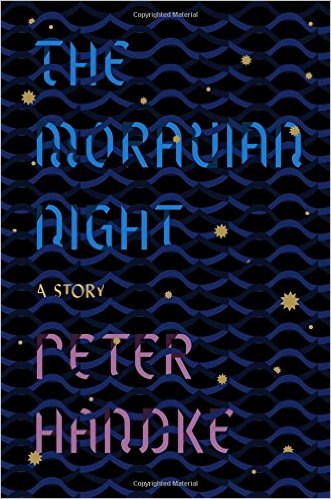After the New York Review of Books published an aggressively idiotic review of The Moravian Night, I sent a letter to the editor. It has been ignored.

So I publish it here.
29 January 2017
Dear Editor,
Adam Kirsch’s review of Peter Handke’s “The Moravian Night” (like Joshua Cohen’s review of the novel in The New York Times) rightfully relates it to Handke’s previous work set in the former Yugoslavia, but (like Cohen) Kirsch is so obsessed with reading through that lens that he pays scant attention to other aspects of the novel at hand.
Kirsch’s case against an author he describes as a self-righteous, obstinate, proud nationalist and as an anti-Semitic Serb lover leads him to misread a scene at a world convention of Jew’s harp players during which each musician plays his or her national anthem. Because he wants to brand Handke as a nationalist, Kirsch doesn’t quote the rest of section in which the performances of national anthems raise the protagonist’s ire: “abusing the jew’s-harp to play mendacious harmonies: that was impermissible”; the national anthems are a kind of “melodic demagoguery.”
Kirsch marshals his case with great certainty, claiming that Handke defends Austrians and Germans and Serbs as “great peoples” scorned by others for their war crimes. Because Handke works dialectically, critics like Kirsch easily find objectionable statements in his work. That they settle on the problematic statements without the dialectical context marks them as ideologues rather than readers. “Austria,” Handke once wrote of the land Kirsch claims he promotes at all costs, “the lard that chokes me.” Critics who don’t have the patience or capacity to read give me that same feeling.
Scott Abbott
Translator of Peter Handke’s Journey to the Rivers, Voyage by Dugout, and To Duration
